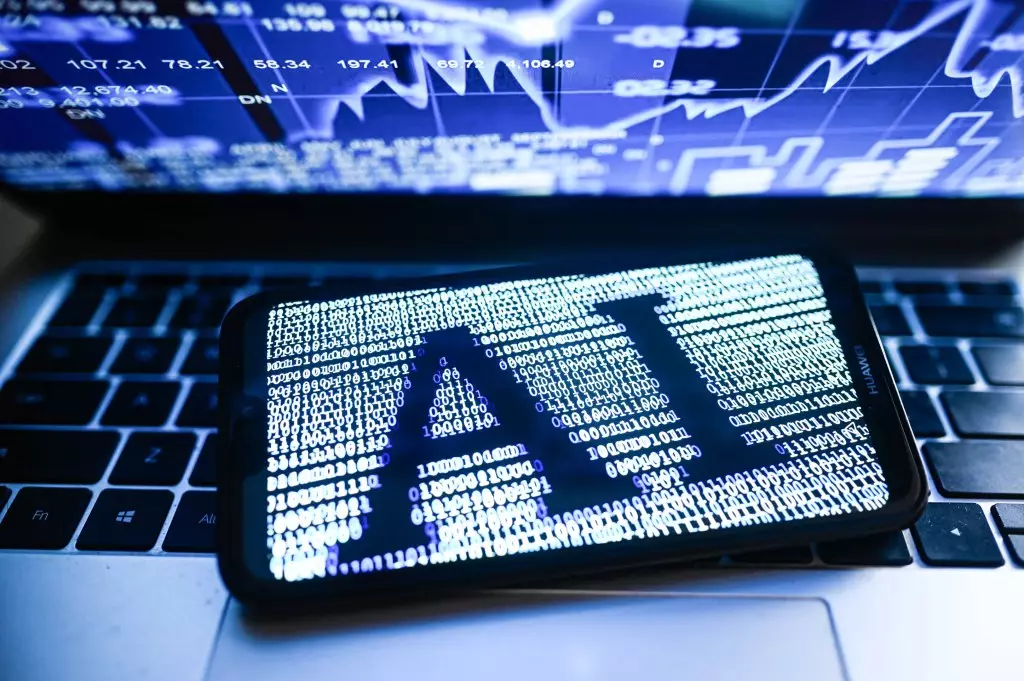Artificial Intelligence (AI) is undeniably transforming various industries, but its rapid development raises dire questions about the sanctity of intellectual property, especially in creative fields. In a recent ten-page commentary submitted to the White House Office of Science and Technology, the Motion Picture Association (MPA) found itself at a crucial intersection, advocating that AI should coexist with a robust copyright system. Their stance may appease certain stakeholders, yet it reveals an unsettling complacency toward a looming existential threat to creative integrity. The MPA’s statement presents a well-polished image of moderation, reflecting a sobering reality that the neuroscience of creativity is not merely data to be mined. Rather, it is a tapestry of human emotion, cultural narrative, and artistic labor—elements that cannot be reduced to algorithms.
Big tech firms like OpenAI and Google have clamored for fewer restrictions on their usage of copyrighted material, essentially bending the argument towards national security. They posit that if U.S. companies face limitations, international competitors—particularly China—will gain a competitive edge in the AI race. This line of reasoning, although cloaked in the language of progress, is essentially a guise for corporate interests seeking unfettered access to creative assets. To commodify creativity under the pretext of economic competitiveness undermines the ethical foundation of artistic production, reducing profound cultural contributions to mere transactional data points.
Hollywood’s Intrinsic Dilemma
The MPA finds itself in a precarious position as Hollywood grapples with shifting tides. Many industry giants, including Netflix and Disney, share a vested interest in AI but are also tethered to the legacy of copyright protection. The contradiction is evident—although AI has the potential to bolster creativity, it often threatens to erode the very essence of what that creativity stands for. The passionate outcries from writers and artists against perceived exploitation speak volumes about their fears of a future where the nuances of human creativity are supplanted by synthetic imitation.
An open letter circulated among A-list celebrities underlines this dilemma, warning that the unchecked advancement of AI could lead to the irrevocable degradation of the entertainment industry. It mentions the colossal market values of AI companies like Google and OpenAI, urging for copyright protections that have historically allowed the artistic community to thrive. Their argument resonates: there’s little justification for a technology to evade existing laws designed to protect creators simply because it can “revolutionize” industries.
The Economic Implications of Ignoring Copyright
The economic arguments presented by the MPA offer a potent reminder of the gravity of this debate. With U.S. copyright industries contributing over $2 trillion to the economy and playing a vital role in the global market, the infringement of copyright protections threatens not just artists but also a sprawling economic sector. These figures make a strong case for preserving copyright laws as integral to ensuring fair compensation and incentivizing creativity.
Moreover, the MPA asserts that strong copyright protection and innovation go hand in hand. If creative output is undermined, the quality of AI-generated content will ultimately suffer—a stark warning to developers of the garbage-in, garbage-out principle. If content creators are not compensated fairly, the tapestry of cultural material that AI learns from would be threadbare at best. The loss would not merely be financial; it would also reflect a broader cultural impoverishment, diminishing the rich landscape from which new ideas spring forth.
The Uncertainty of Legislative Change
Despite the urgent calls for systematic change, the MPA’s belief that existing copyright laws can effectively address these emerging challenges raises eyebrows. Legal frameworks can be notoriously slow to adapt, rendering them ill-equipped to handle the pace of technological advancement. Courts have grappled with copyright issues for over a hundred years, but the complexities introduced by AI demand novel interpretations of existing laws.
Moreover, the concern over labeling generated content raises a profound ethical question: should audiences be informed about the nature of creativity? The MPA’s position on opposing such requirements in certain contexts might undermine a more transparent relationship between technology and artistic expression. In a time where consumer skepticism about the use of AI is rising, failing to address these issues could alienate audience trust and ultimately harm the very industries the MPA seeks to protect.
In essence, the conversation surrounding AI and copyright is far from settled. While companies scramble to position themselves in this brave new world, the creative community finds itself in a precarious balance, struggling to defend its rights amidst rapid technological upheaval. The future of artistic integrity and economic viability hinges on recognizing that creativity is not just a product, but a fundamental human endeavor deserving of respect and protection.

Leave a Reply